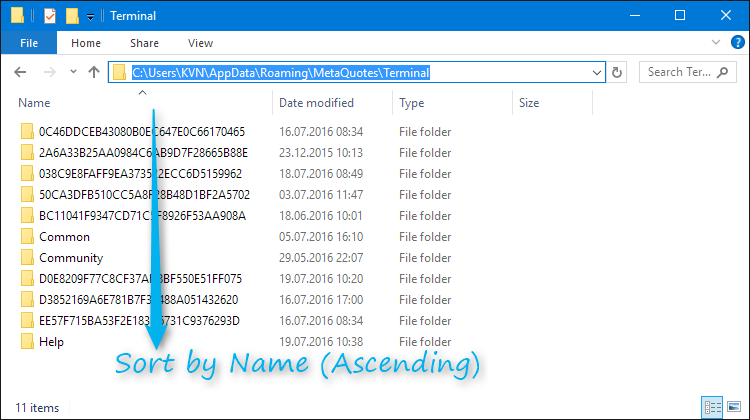Getopenfilename Default File Path On Word
Displays the standard Open dialog box and gets a file name from the user without actually opening any files. Expression.GetOpenFilename( FileFilter, FilterIndex, Title, ButtonText, MultiSelect) expression Required. An expression that returns an Application object.
FileFilter Optional Variant. A string specifying file filtering criteria. This string consists of pairs of file filter strings followed by the MS-DOS wildcard file filter specification, with each part and each pair separated by commas. Each separate pair is listed in the Files of type drop-down list box. For example, the following string specifies two file filters—text and addin: 'Text Files (*.txt),*.txt,Add-In Files (*.xla),*.xla'.
To use multiple MS-DOS wildcard expressions for a single file filter type, separate the wildcard expressions with semicolons; for example, 'Visual Basic Files (*.bas; *.txt),*.bas;*.txt'. If omitted, this argument defaults to 'All Files (*.*),*.*'. FilterIndex Optional Variant.

Specifies the index numbers of the default file filtering criteria, from 1 to the number of filters specified in FileFilter. If this argument is omitted or greater than the number of filters present, the first file filter is used. Title Optional Variant. Specifies the title of the dialog box. If this argument is omitted, the title is 'Open.' ButtonText Optional Variant. Macintosh only.
' Default Filter to *.*. ' Set File Name to selected File Filename =.GetOpenFilename(Filter. Back to VBA Visual Basic for Applications (Microsoft).
MultiSelect Optional Variant. True to allow multiple file names to be selected.
False to allow only one file name to be selected. The default value is False Remarks This method returns the selected file name or the name entered by the user. The returned name may include a path specification. If MultiSelect is True, the return value is an array of the selected file names (even if only one filename is selected).
Returns False if the user cancels the dialog box. This method may change the current drive or folder. This example displays the Open dialog box, with the file filter set to text files. If the user chooses a file name, the code displays that file name in a message box. FileToOpen = Application _. GetOpenFilename('Text Files (*.txt), *.txt') If fileToOpen False Then MsgBox 'Open ' & fileToOpen End If.

Hello, I'm using Excel 2002 on Windows 2000. In some VBA code I need to get the user to open a file from a certain location, or at least get the dialog box to default to that location. I also need to know whether a valid file has been opened and what the file name is.
This is what I'm currently using: With Application ' Store the original default file path sOriginalPath =.DefaultFilePath ' Set the default file path to the directory we want.DefaultFilePath = sOpenPath ' Get the name of the file to be opened sOpenFile =.GetOpenFilename('All files (*.*), *.*') ' Restore the original default file path.DefaultFilePath = sOriginalPath End With However, although.DefaultFilePath actually changes, the dialog box ignores it. I've tried creating then closing a new instance of Excel after setting the path; it doesn't make any difference.
I've also tried using: Application.Dialogs(xlDial ogOpen).Sh ow sOpenPath to open the file, but that doesn't let me obtain the file name. The routine below sets the folder name ('C:temp) and then cycles through each file in this folder and adds it to an array and a string if it is a spreadsheet. You could modify this validity test (based on name, type, timestamp etc). Sub FileNametoExcel() Dim fnam As Variant ' fnam is an array of files returned from GetOpenFileName ' note that fnam is of type boolean if no array is returned. ' That is, if the user clicks ' on cancel in the file open dialog box, fnam is set to FALSE Dim b As Integer 'counter for filname array Dim b1 As Integer 'counter for finding in filename Dim c As Integer 'extention marker ' first open a blank sheet and go to top left ActiveWorkbook.Worksheets. Farquiza, thanks for the replies but your first solution won't return the file name and your second one doesn't let you set the default path.
Herr Der Ringe Schlacht Um Mittelerde 2 Crack Free Download. Brettdj, your solution would work but I think PoshDog's solution looks like it's the cleanest. I haven't tried it yet though, I'll have to get my head around FileDialog first.
However, after I posted the query I did one last search on-line and managed to find a very easy solution. Here it is: Dim sOpenFile As String ' File to open ' ChDir will change the directory that the 'open file' dialog box ' defaults to, but only if it's on the same drive as the current ' default directory. If not, you need a ChDrive first. ChDrive (Left(sOpenPath, 3)) ChDir (sOpenPath) ' Get the name of the file to be opened sOpenFile = Application.GetOpenFilenam e('All files (*.*), *.*') I'd tried using ChDir without success, but the key is that you have to use ChDrive first unless your new path is on the same drive as your current path.
This should be a PAQ. Here's the answer I've been using in my VBAs it works flawlessly: and the sub I call it from Private Sub Command17_Click() 'Andrew Komasinski 'References: 'X Dim cmdlgOpenFile As New clscommondialog Dim Filename As String 'full file name Const clngFilterIndexAll = 5 cmdlgOpenFile.Filter = 'Excel Spreadsheets (xls) *.xls' cmdlgOpenFile.FilterIndex = clngFilterIndexAll 'this is where the dialog opens cmdlgOpenFile.ShowOpen 'returns your full file name. Filename = cmdlgOpenFile. Serial Para Interwrite Workspace there. Filename 'hence no len, no name. If Len(Filename) = 0 Then Exit Sub Dim fs As Object Set fs = CreateObject('Scripting.Fi leSystemOb ject') If fs.FileExists(Filename) Then DoCmd.OpenForm 'Import Wizard' Application.Forms('Import Wizard').MyRealOpen (Filename) 'my Real open was a function I used to open the file so that I could import excel files to access.
'just replace this with whatever openfile you need Else MsgBox 'That file would not open' Exit Sub End If End Sub.